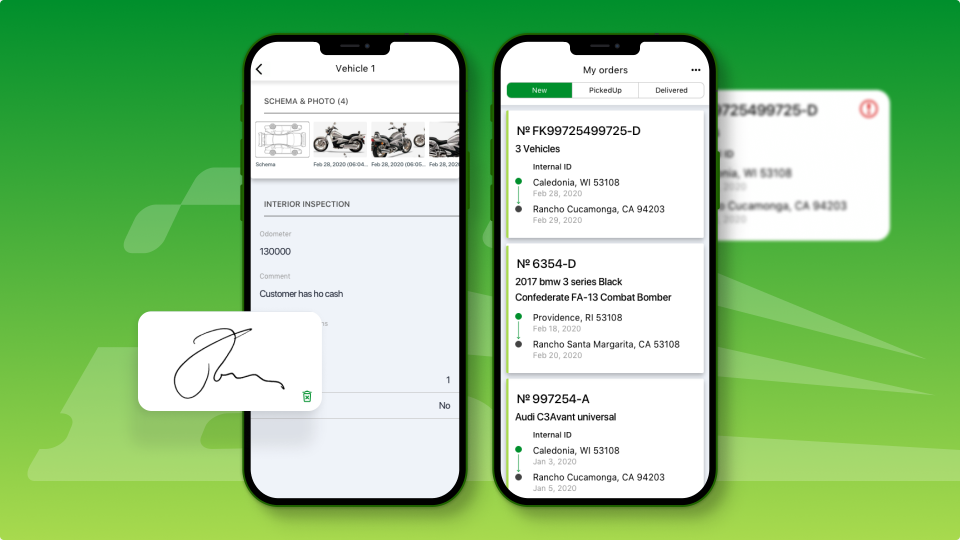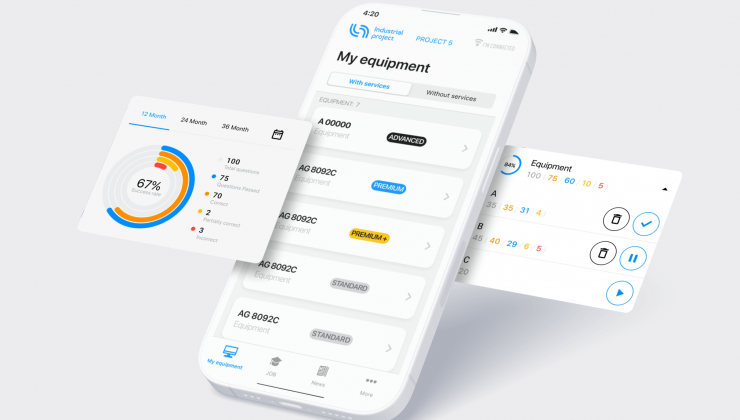We invite you to witness an epic showdown between Microsoft cloud vs Amazon cloud solutions. We wouldn't dare to interfere in this battle of giants, but for the past three days, we’ve had lively discussions in our online and virtual offices.
It all started with a Reddit thread shared by one of our Technical Product Owners in the general chat.
Typically, our teams are unified in their technical decisions and preferences, but as Socrates said, "Truth is born in argument." Therefore, we decided to gather opinions from different sides and support them with completed case studies, statistics, and open data.
We'll tell you everything you need to know to determine which option is best for taking your project to the next level. Let's get started!
Opponent №1. What is AWS and what is it for?
In the right corner of the virtual ring, we have the undisputed king of the cloud and the favorite of many startups and authoritative companies worldwide – AWS. It is a cloud platform that offers over 200 fully functional services, including computing, storage, databases, analytics, networking and content delivery, developer tools, IoT, security, management, and enterprise applications.

It serves customers in 245 countries and has a highly developed global infrastructure (100+ availability zones) in 30+ regions. Soon it plans to open at least 5 new regions (in Malaysia, Thailand, New Zealand, etc.).
Advantages
Its strengths lie in security, performance, and availability. It takes pride in its global scale, flexibility for deploying solutions, and theoretically infinite scalability of the cloud.
«In the Microsoft Azure vs AWS debate, I would choose the latter. For instance, in APIM, there's functionality that could be critical for business, but it's only available on more expensive subscription tiers. The desire to use best practices and technologies can lead to unnecessary expenses, which is especially problematic for startups and small companies with limited budgets. Prices on AWS may vary, but you won't have to pay for what you don't need». © WEZOM team Product Owner
Here's what other "fans" from our Development Team say about Amazon's cloud services:
- Security is definitely another strong point of AWS. It adheres to recognized standards such as ISO 27001 (information security) and has specific compliance programs for various industries, such as PCI DSS for payments.
- AWS is built with a focus on high resilience and performance. Its high load distribution capability allows for deploying mission-critical applications with minimal downtime.
- I agree that speed is crucial for most developers as it ensures fast loading of applications and websites. This increases customer and end-user satisfaction. Additionally, the quick responsiveness of AWS services ensures the flexibility of our applications and fast response to interactions, ensuring uninterrupted operation.
- It's also worth noting that the Amazon team implements updates that are at the forefront of cloud computing innovations. This allows us to use the most modern techniques, stacks, and methodologies to address business challenges.
Disadvantages
One of the main drawbacks, noted by 80% of the people participating in our debate, is technological dependency.
Relying solely on one provider makes us vulnerable to any changes in their terms. If infrastructure and applications are tightly integrated with specific AWS services, there may be difficulties in migrating to another platform in the future. However, this doesn't resolve the Cloud AWS vs Azure debate, as it applies equally to both services.
Additionally, standard AWS support may be insufficient to meet all needs. Some companies have very complex cloud architectures, and specialized and personalized consultations may be required optimize performance and efficiency. Also, companies operating in strictly regulated industries (such as healthcare and finance) may find themselves dependent on additional support.
Despite flexible pricing models, long-term expenses can significantly increase, especially for small and medium-sized enterprises.
Misusing resources can lead to unexpected and high expenses. For example, if you're storing large volumes of data that you no longer need, you'll still be charged for them.
Examples of companies using AWS
Who chooses AWS as a "companion on cloud journeys":
- Netflix: for scaling streaming video services. AWS provides Netflix with infrastructure for data storage, content delivery, and viewing analytics processing.
- NASA: for new scientific discoveries and understanding of various space and atmospheric processes. For example, Amazon SageMaker helps NASA scientists develop machine-learning models for data analysis.
- BMW: for software development and deployment. AWS helps BMW process large volumes of data coming from cars and improve business process efficiencies.
A little Case Study
WEZOM team was tasked with creating a SaaS TMS for a logistics company and optimizing all processes, including leveraging cloud services. In the end:
- Company expenses decreased by 19.5%;
- Processing times decreased by 3 times;
- Unloading time at the point became 41% faster.
How did we achieve such stunning results? Especially considering that our solution did not require high investments, unlike other analogs on the market.
The client received a highly functional TMS that allows staff to edit driver and dispatcher actions, create routes, check orders, and more. Find out more here:
Opponent №2. What is Azure and what is it for?
Finally, we are meeting the second participant in our battle — the brainchild of Microsoft — Azure. It's a kind of "control center" in the cloud, where we can deploy and test our projects without worrying about physical infrastructure. It offers a multitude of services, including computing power, analytics, data storage, and networking.

It has over 300 physical data processing centers worldwide. It encourages environmental initiatives: the company has achieved carbon neutrality and plans to eliminate all carbon it directly emits by 2050 from its inception. It offers many ready-made solutions and also more than 200 functional services.
Advantages:
Pride: 1.000 millions of USD spent on training cybersecurity specialists. Resilience, up to complete regional shutdown thanks to dedicated high-performance network infrastructure.
"Of course, Azure is better! They have extensive libraries and convenient tools for developing Python applications in the cloud. Additionally, the platform offers robust solutions for hybrid clouds, allowing the combination of local and cloud resources." © Python programmer of WEZOM team
Opinions of fans regarding the advantages of Azure over AWS of our team:
- It's obvious that Azure is preferable when you need deep integration with existing Microsoft products. For example, for large organizations and government agencies seeking integration and compatibility.
- I like Blob Storage for cost-effective storage of unstructured data in large volumes and Table Storage for applications that require large-scale semi-structured storage.
- Why is everyone silent about their Cognitive Services? It's a fantastic opportunity to add vision, language, speech, and search capabilities to your applications and it doesn’t require expertise in artificial intelligence.
- If I were Netflix, I would choose Azure. They have excellent capabilities to scale resources both horizontally (adding more instances) and vertically (improving the performance of a single instance).
Disadvantages:
In general, the drawbacks of AWS and Azure are almost identical: the complexity of pricing, support issues, and documentation (for example, Azure for Health has geographical restrictions to comply with laws on medical data privacy in different countries).
Sometimes users report performance issues, especially when using certain types of virtual machines. Some note that Azure may be less flexible compared to other platforms, especially in terms of infrastructure configuration and management.
Examples of companies that use Azure
- Coca-Cola: to enhance supply chain and operations. Using cloud technologies, the company optimized inventory management and increased logistics efficiency.
- Samsung: to improve the ecosystem of smart devices and create a platform for interaction and management.
- Hewlett-Packard (HP): to optimize operational costs and provide cloud services to its clients.
- Interestingly, BMW also utilizes Azure. The company "plays on two fronts" and chose Microsoft services to develop its Internet of Things (IoT) solutions.
Let’s analyze one Case Study
From manual management, through spreadsheets and PDF files, to a unified CRM system.
We underwent a true digital transformation, implementing 5 projects from scratch for an industrial giant, digitizing every aspect of its internal processes step by step. Naturally, this required specific cloud solutions: Dynamics 365 Sales and Power BI for creating reports and dashboards. This enabled the implementation of quality analytical support and provided the opportunity to develop a competitive business strategy.
Additionally, we utilized Microsoft Learn to create interactive training courses for employees. We integrated it with Microsoft Teams and added virtual assistants based on Azure Cognitive Services to provide answers to questions during the learning process.
Many of the manufacturer's overseas offices still manage operations manually. Therefore, our result proved to be revolutionary for them. We provide more details on this in a separate article.
Key Differences Between AWS vs Azure
To assist you in expediting and simplifying the decision-making process, we've taken the time to compare the most sought-after cloud products and services across several critical business categories.
|
Amazon Web Services |
Microsoft Azure |
|
|
Global Infrastructure |
30+ regions, 100+ availability zones |
60+ regions, 170+ availability zones |
|
Ease of Use |
Subjectively considered the most user-friendly due to simplicity, flow of documentation, and clear informational dashboards. |
User-friendly approach, integration with the Microsoft product suite |
|
Hybrid Cloud Support |
Limited |
Strong (Arc, Stack) |
|
Pricing |
Pay-as-you-go pricing, reserved and spot instances |
More advantageous conditions for Microsoft products, Azure Hybrid Benefit |
|
Performance and Reliability |
High performance and resilience |
Good performance, but issues may arise |
|
Security |
Compliance with international security standards, AWS Shield, AWS WAF |
Integration with Active Directory, compliance with standards |
|
Documentation and Support |
Extensive, but maintenance complexities may arise |
Sufficient, solutions for niche cases are available |
|
Target Market |
Startups, small and medium-sized enterprises, global companies |
Corporate clients, integration with the ecosystem |
Within the team, we concluded that the main difference between Azure and AWS lies in their integration with existing products and their approach to the target market. However, there is another very important round to consider.
Price battle
- The folks at Microsoft are not shy, and right on the main page, they present us with the following statistics:
- You will pay 93% less for SQL Database compared to using AWS RDS;
- Virtual Machines cost 54% less than AWS EC2;
- Overall, Windows Server and SQL Server on Azure will be 5 times cheaper.
So how do the folks at Amazon respond? They modestly compare their prices to utility bills, such as water or electricity. Unfortunately, they don't provide a digital equivalent, only emphasizing the "pay for what you use" model. They also promise attractive Savings Plans and the possibility of discounts as you scale up operations.
In any case, we will dig deeper and look at a comparison using a specific example. To do this, we'll use open and publicly available calculators:
Let's take a typical example of using cloud resources: deploying a general-purpose virtual machine for a web application. Here is the configuration example:
- vCPU: 2 cores
- RAM: 8 GB
- Storage: 100 GB SSD
- Operating System: Linux
- Usage: 24/7 for a month (730 hours)
Amazon Web Services
- Hour cost for using a t3.large instance in the US East (Northern Virginia) region is $0.0832
- Monthly cost for the VM: $0.0832 * 730 = $60.74. Storage: Amazon EBS General Purpose SSD (gp2): $0.10 per GB per month. 100 GB * $0.10 = $10
- Total monthly cost: $60.74 (virtual machine) + $10 (storage) = $70.74 per month
Azure
- Hour cost for using a D2s v3 instance in the US East region is $0.096 per hour.
- Monthly cost for the VM: $0.096 * 730 = $70.08
- Storage: Azure Managed Disk Standard SSD: $0.10 per GB per month 100 GB * $0.10 = $10
- Total monthly cost: $70.08 (virtual machine) + $10 (storage) = $80.08 per month.
It's important to note that prices can vary depending on the region, subscription type, and additional discounts offered by both platforms. Additionally, the cost may change based on specific needs and resource configurations you use.
Let's Summarize. What is the Best Cloud Platform?
We concluded that "friendship wins." Each competitor has its strengths and weaknesses. When clients ask, "Which is best AWS or Azure?" - we answer that it depends on budgets, goals, and key tasks.
In some points Azure can be potentially more interesting - for example, compliance with industry standards (verified by certificates), including in the field of handling personal data, medical data, etc. Plus, for large corporate clients, there are more attractive subscription saving plans.
On the other hand, the capabilities of AWS are truly impressive. This includes flexibility and scalability, the ability to quickly deploy applications and services, reducing infrastructure and management costs.
Interestingly, over the past year, there has been a significant increase in demand for specialists working specifically with the Azure ecosystem (roughly half of the 10 market offers). This indirectly suggests increased demand for the services of this cloud. According to our observations, today 4% of clients use private cloud, 72% use hybrid, and 24% use public cloud.
How to Choose the Right Cloud Platform
If you're considering implementing cloud services into your project, it's important to find a truly professional team. That's what we would advise prioritizing, rather than just a Microsoft Azure & AWS comparison.
Both platforms offer good educational materials, but it's still a complex maze for beginners. So, we would recommend relying on the relevant experience of the development team and considering the project's priorities.
Our experts carefully analyze your specific requirements, current and future business goals, as well as existing IT infrastructure. This approach allows us to propose the best solution tailored to your unique needs.
Are you ready to leverage the full potential of cloud solutions and take your business to the next level?


